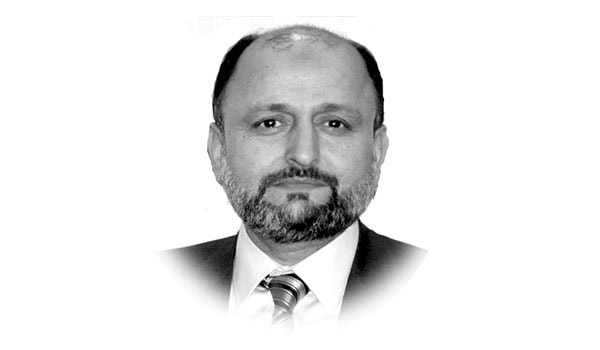Leadership and management
THE debate about the dominance of leaders and managers, as a concept, over each other continues in the literature and popular discussion alike.
Management gurus refer to the established four functions of management comprising planning, organizing, leading and controlling to establish management as a comprehensive concept to provide all what is required to ensure success for any organization from a family unit to the affairs of a national government or global organizations.
Leadership experts emphasize the importance of charisma, vision, eloquence and empathy demonstrated by several successful leaders in human history.
I think this debate will remain to exist on expert and general forums because of several technicalities surrounding these concepts which still need deeper research and clarification.
However, one of my recent training sessions [23 June 2022] at WAPDA Hospital Complex Lahore titled “leadership and management in healthcare” was an interesting experience to differentiate the role of both leaders and managers in the sector to provide effective and efficient healthcare services to the community.
Interestingly, participants had to perform dual roles as managers and leaders both due to their unique position in their institutions as specialist doctor and head of their respective departments/hospitals.
This kind of hybrid organizational structure always remains demanding when an individual has to exhibit his leadership and managerial activities both at the functional and departmental fronts.
This requires expertise in managerial skills and proficiency in the relevant specialisation to influence both line and staff activities.
In the case of healthcare, performing as a specialist demands mastery as a surgeon, as a cardiologist, as a physician, as a gynaecologist and so on while as a head of the department or hospital the same individual needs know-how in human resource management & development, customer (patients and their relatives) relationship management, stakeholders’ management, communications skills, financial management, even marketing skills in case of private sector and so on.
This makes the job of healthcare professionals quite challenging and demanding. It is because of this reason that a separate discipline of healthcare/hospital management has evolved around the globe to develop specialised human resource for the sector.
In the case of subject hospital, like many other public sector hospitals in Pakistan, the management structure is still hybrid.
Despite extensive development of public health programmes in terms of curriculum there remains a gap to learn about human resource management and development, financial management, accounting know-how, facilities management, dynamics of organizational behaviour, intricacies of planning & organizing, art of controlling and art & science of leadership.
Therefore, an interesting pattern has been observed that several medical graduates choose the management track through obtaining MBA degrees and try to bridge the gap while bringing explicit management and leadership perspectives to the healthcare sector.
In every organization it is about personal and position power which enables an individual to drive organizational members to the given objective.
Position power is obvious which comes from the position one holds, it is an ability to reward or coerce.
Personal power is based on the unique personal qualities that a person brings to the leadership/management situation including expert power, a capacity to influence others because of one’s knowledge and skills and referent power, a capacity to influence others because they admire the leader/manager and want to identify positively with the leader/manager.
Charisma is the influence that is generated by a leader’s style and persona which means the public image of a leader’s personality and the character that is presented to or perceived by others.
Discipline is the product of management which brings predictability, integration, efficiency and harmony in organizational operations.
It means there is a significant difference between leaders and managers. To manage means to accomplish activities and master routines, whereas to lead means to influence others and create vision for change.
Managers are people who do things right and leaders are people who do the right things. Leadership is a multidirectional influence relationship and management is a unidirectional authority relationship.
Leadership is concerned with the process of developing mutual purposes; management is directed toward coordinating activities in order to get a job done.
Leaders and followers work together to create real change, whereas managers and subordinates join forces to achieve given objectives.
There is an interesting overlap of leadership and management. When managers are involved in influencing a group to meet its goals, they are involved in leadership.
When leaders are involved in planning, organizing, staffing and controlling, they are involved in management.
Both processes involve influencing a group of individuals toward goal attainment. It is important to note that the influence which inculcates integrity, courage, change, stewardship and care for others will be considered leadership.
There are several instances of influence in human history including our recent times where people influenced masses to create unrest, chaos and instability in the society.
Those who are advocates of anarchy, strife and volatility in the society are called pseudo leaders.
Therefore it is important to distinguish real leadership from the dark side of the leadership both in terms of behaviour and outcome.
Management produces order and consistency through planning & budgeting, establishing agendas, setting timelines and allocating resources; while leadership produces change and movement through establishing direction, creating vision, clarifying big picture and setting strategies.
Managers organize resources, ensure appropriate placements of people and establish rules and procedures; whereas leaders align people, communicate goals, seek commitments and build teams & coalitions.
Controlling and problem solving, extending incentives to motivate people, generating creative solutions and taking corrective actions to avoid deficiencies are the domain of a manger; motivating, inspiring, energizing, empowering and satisfying unmet needs are in the sphere of a leader.
It was our consensus at the end of the training session that a society like Pakistan needs both outstanding managers and exceptional leaders to solve pressing problems at institutional levels without any exception from politics to public health and education to the economy.
—The writer is Associate Professor Management Sciences, Head, Centre of Islamic Finance, COMSATS University (CUI) Lahore Campus.










